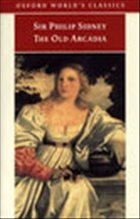Nicht lieferbar

The Countess of Pembroke's Arcadia (The Old Arcadia)
Versandkostenfrei!
Nicht lieferbar
Weitere Ausgaben:
Philip Sidney was in his early twenties when he wrote his `Old' Arcadia for the amusement of his younger sister, the Countess of Pembroke. The book, which he called 'a trifle, and that triflingly handled', reflects their youthful vitality. The `Old' Arcadia tells a romantic story in a manner comparable to that of Shakespeare's early comedies. It is divided into five `Acts', and abounds in lively speeches, dialogues, and quasi-dramatic tableaux. Two young princes, Pyrocles and Musidorus, disguise themselves as an Amazon and a shepherd to gain access to the Arcadian Princesses, who have been tak...
Philip Sidney was in his early twenties when he wrote his `Old' Arcadia for the amusement of his younger sister, the Countess of Pembroke. The book, which he called 'a trifle, and that triflingly handled', reflects their youthful vitality. The `Old' Arcadia tells a romantic story in a manner comparable to that of Shakespeare's early comedies. It is divided into five `Acts', and abounds in lively speeches, dialogues, and quasi-dramatic tableaux. Two young princes, Pyrocles and Musidorus, disguise themselves as an Amazon and a shepherd to gain access to the Arcadian Princesses, who have been taken into semi-imprisonment by their father to avoid the dangers foretold by an oracle. As a vehicle for Sidney's prophetic ideas about English versification, the `Old' Arcadia also includes over seventy poems in a wide variety of metres and genres. In clarity, symmetry, and coherence the `Old' version is greatly superior both to the ambitious but unfinished `New' Arcadia and the amalgamated, `composite' version, a hybrid monster which Sidney himself never envisaged.
Philip Sidney was in his early twenties when he wrote his `Old' Arcadia for the amusement of his younger sister, the Countess of Pembroke. The book, which he called `a trifle, and that triflingly handled', reflects their youthful vitality. The `Old' Arcadia tells a romantic story in a manner comparable to that of Shakespeare's early comedies. It is divided into five `Acts', and abounds in lively speeches, dialogues, and quasi-dramatic tableaux. As a vehicle for Sidney's prophetic ideas about English versification, the `Old' Arcadia also includes over seventy poems in a wide variety of metres and genres. In clarity, symmetry, and coherence the `Old' version is greatly superior both to the ambitious but unfinished `New' Arcadia and the amalgamated, `composite' version, a hybrid monster which Sidney himself never envisaged.
Philip Sidney was in his early twenties when he wrote his `Old' Arcadia for the amusement of his younger sister, the Countess of Pembroke. The book, which he called `a trifle, and that triflingly handled', reflects their youthful vitality. The `Old' Arcadia tells a romantic story in a manner comparable to that of Shakespeare's early comedies. It is divided into five `Acts', and abounds in lively speeches, dialogues, and quasi-dramatic tableaux. As a vehicle for Sidney's prophetic ideas about English versification, the `Old' Arcadia also includes over seventy poems in a wide variety of metres and genres. In clarity, symmetry, and coherence the `Old' version is greatly superior both to the ambitious but unfinished `New' Arcadia and the amalgamated, `composite' version, a hybrid monster which Sidney himself never envisaged.



